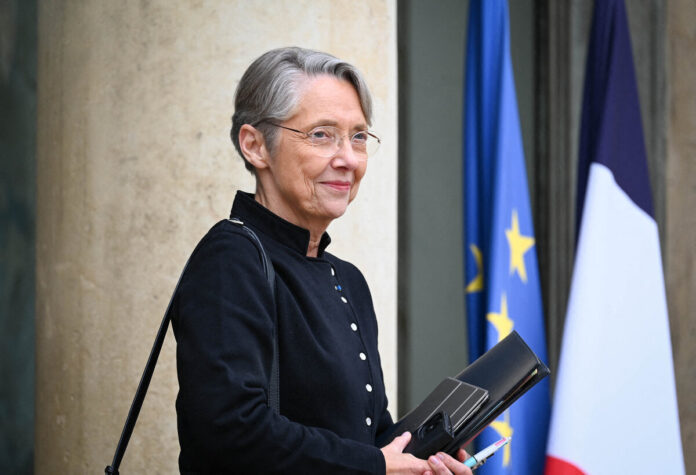By using article 49.3 to push through the pension reform, the executive set fire to the powder at the heart of an already very tense situation. For many French people, this avoidance of the vote in the National Assembly sounded like an affront, which poisoned difficult relations between the government, the unions and the demonstrators. While wild demonstrations break out every evening in the major cities of France and at the dawn of a new day of mobilization, the Prime Minister, Elisabeth Borne, wants to find the way to appeasement. She thus expressed herself to AFP, hoping to be able to find a way out of this major crisis. Explanations.
During his interview, broadcast last Wednesday, the President of the Republic, Emmanuel Macron, failed to convince the French, who were particularly critical of the “contempt” displayed by the Head of State . Among the unions and the members of the opposition, the time was even for anger in the face of a leader, who seemed not to have heard the demands of the French, nor to be concerned about their mobilization. In the midst of the turmoil, several members of the government are, in turn, seeking to create a serene and peaceful context for the debate.
With the JDD, Olivier Véran, the spokesperson for the government, thus spoke at length about the prospect of a “rearranged” parliamentary roadmap, while reaffirming the inflexibility of the executive. He did not hesitate to confirm the next reforms to be put in place, despite the omnipresent social protest. On the sidelines of a long-awaited Constitutional Council, he also called for a dialogue with the unions to work in the interests of the French. With, in sight, the question of “career end management”, “professional retraining” or even “the revaluation of wages below the Smic”.
In an interview given to AFP this Sunday, the Prime Minister, Elisabeth Borne, followed in the footsteps of the government spokesperson, wishing to open a space for discussion and appeasement. She said she was “at the disposal of the social partners [in order to find] the right path” and wanted to “resume work on all [the] construction sites”, ranging from hardship to professional retraining.
Elisabeth Borne explained that she had opened times for dialogue in her diary in order to receive trade union organizations and employers’ organizations during the week of April 10. After announcing, during a congress of the Horizons party, that she believed that “we [had] done what the French expected of us”, the time therefore seems to be an attempt to find peace.
The Prime Minister, Elisabeth Borne, will however have to face major challenges since the Head of State has instructed her to build a government program, but also a legislative program. Elisabeth Borne therefore intends to imagine “an action plan” with parliamentary groups and political parties that she will receive the week of April 3.
At the same time, the Prime Minister wishes to “discuss with all the actors on the method [to] put in place”. Faced with social anger, she also said that she no longer wanted to use article 49.3, apart from budgetary texts. For the time being, the unions are turning a deaf ear and refusing to dialogue if the pension reform is not called into question. The fight looks tough.















